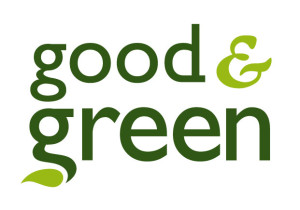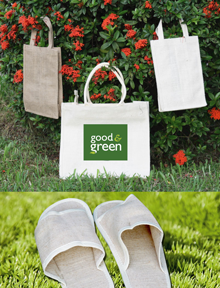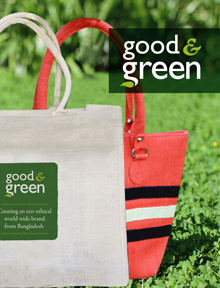Jute is an extremely environmental and sustainable material. Also known as Hessian, it is a rain-fed crop and cultivated without the need for any fertilizer or pesticides (therefore preserving the integrity of the land on which it is grown). Jute is a natural based plant fibre composed of cellulose and is 100% biodegradable and water resistant. Moreover, Jute reaches full maturity within 4–6 months, making it a highly sustainable material requiring little tendering.
The Jute fiber comes from the stem and ribbon (outer skin) of the plant. Once the crop has been harvested, the fibers are separated from the woody central core by “retting” – a process consisting of bundling Jute stems together and immersing them in low, running water. The fibrous outer of the plant is then removed and allowed to dry. Once dry the Jute fibres are graded according to color, then processed and spun into yarn suitable for weaving.


